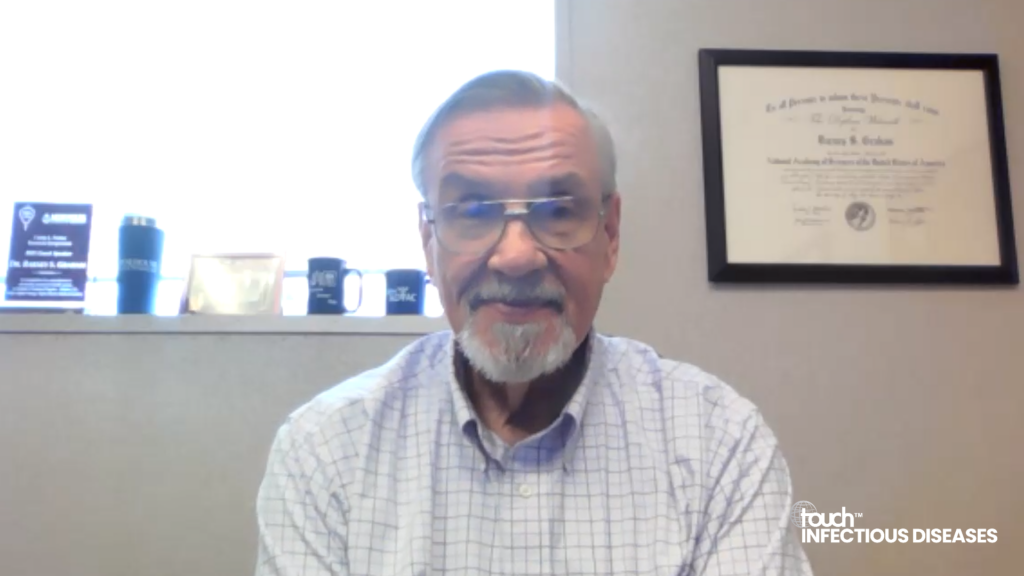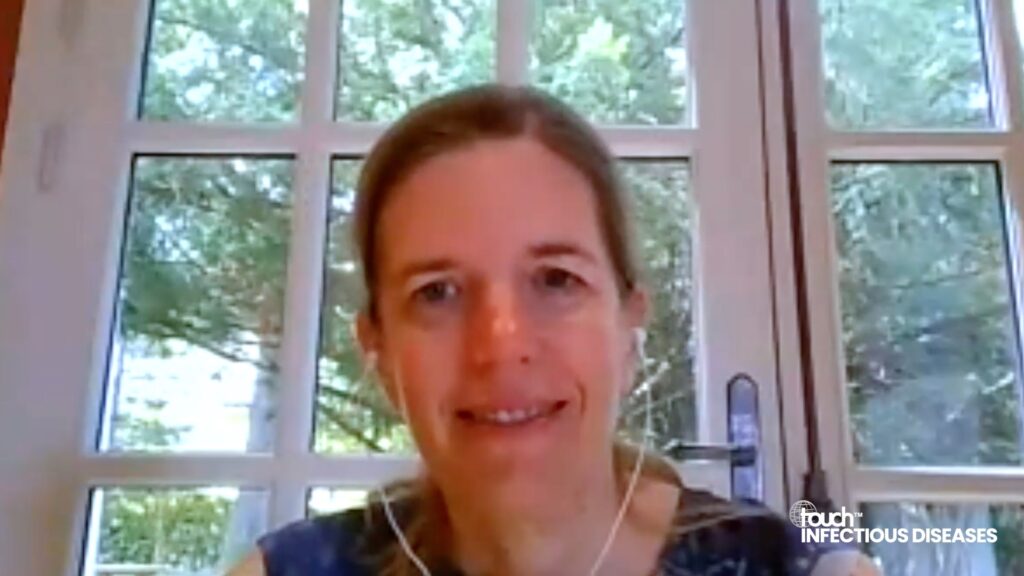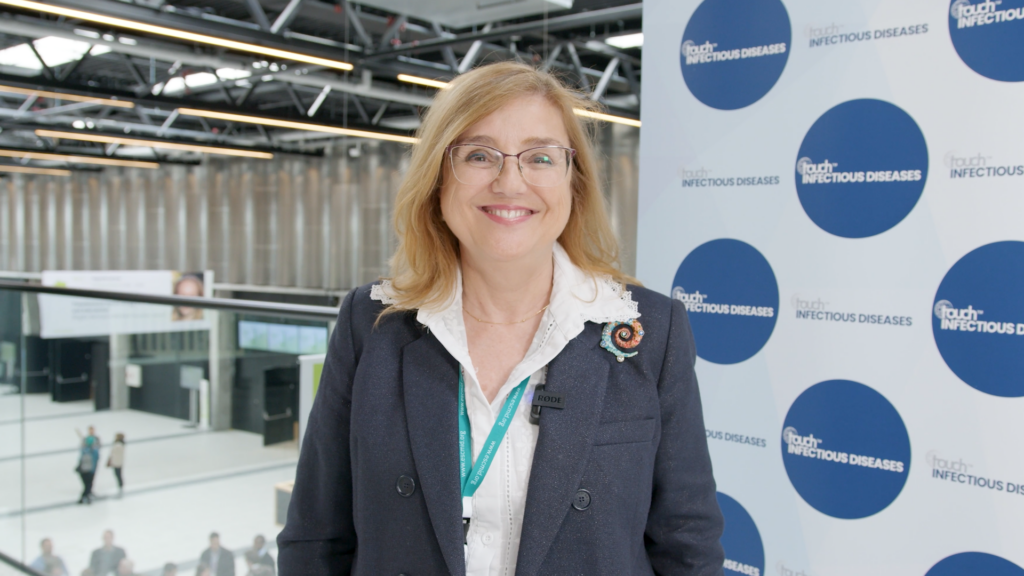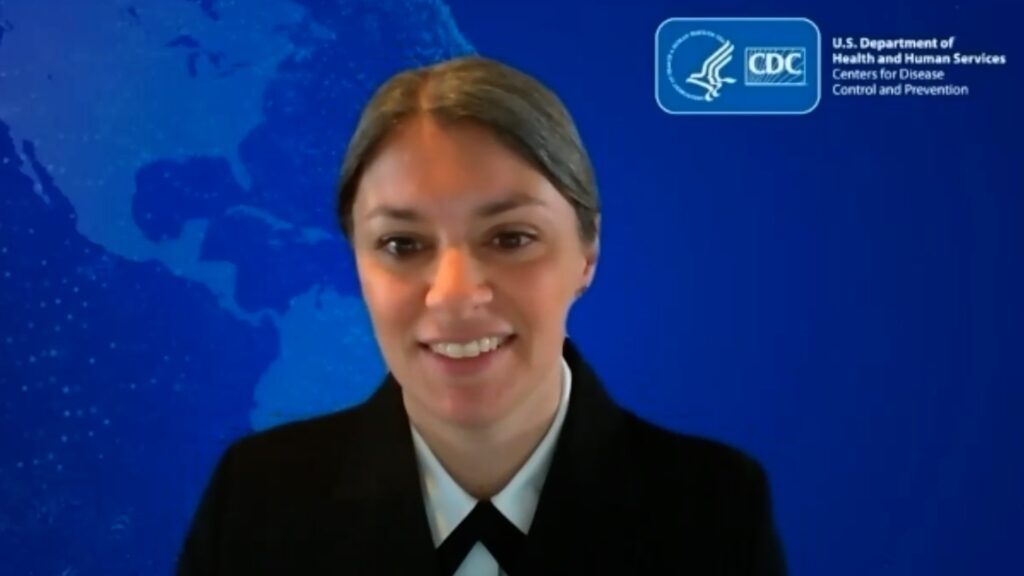The landscape
The European Region is a global vaccine leader, boasting a “strong research ecosystem” and a competitive market, expected to achieve a volume of €16.32 billion by 2029.1,2 Through efforts to keep pace with the “unprecedented acceleration” of life science innovation, the landscape attracts investment and political support as leaders recognise the value of vaccination as a cost-effective intervention and a means of demonstrating health leadership.3 While the environment is promising, Europe must recognise obstacles and acknowledge evolving health demands to realise its potential for continued excellence.
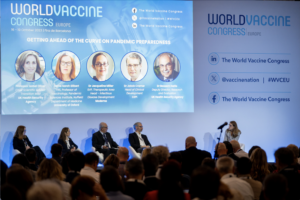 Changing perspectives
Changing perspectives
While Europe hosts research facilities for many of the world’s largest vaccine companies, “challenges to early-stage research” and convoluted routes to EU-level funding threaten to drive these away.4 At the clinical research stage, regional competition is fierce. A 2023 report from the UK highlighted a need for clinical trial reform amid concerns about losing trials to colleagues on the continent.5 Although competition drives innovation, clinical trial delays are reported across the region, prompting developers to look elsewhere.
The 35% relative decline in the global share of vaccine clinical trials since 2000 needn’t be a threat to Europe.6 Instead, this is an invitation to re-evaluate its position in the broader vaccine landscape and affirm its commitment to global health efforts. Coupled with efforts to address the various bureaucratic hurdles at play, this moment of evolution will highlight Europe’s ability to facilitate innovation and collaboration in pursuit of global vaccine demands.
Meeting needs
The region must equip itself to meet emerging and evolving vaccine needs. For example, vaccine targets are shifting as climate pressures and epidemiological evolutions bring infectious disease threats to the fore. Familiar challenges like measles are on the rise, but Europe is also coming face-to-face with more mosquito-borne diseases than before.7 The so-called silent pandemic, antimicrobial resistance (AMR), is a “major public health challenge” linked to over 35,000 deaths in the European Union, Iceland, and Norway.8
On the other hand, non-communicable diseases, responsible for 80% of the disease burden in EU countries, are another key consideration.9 Ageing populations and improved diagnostic capabilities highlight issues like the burden of cancer. Cases of cancer are set to increase by 24% by 2035, making it the leading cause of death in the EU.10
Once these demands are met with new and improved vaccines, the industry faces further challenges such as increasing vaccine hesitancy or anti-vaccine attitudes. Mistrust and misinformation have negative consequences for routine and emergency immunisation programmes and require sensitive and flexible solutions, from needle-free delivery devices to giving scientists a social media platform.
Seeking solutions
After accelerated vaccine development in the COVID-19 pandemic, the idea that vaccines can be readied within 100 days of the identification of a pandemic threat is an ambitious,
but not impossible goal.11 Achieving this goal demands novel technologies, effective manufacturing and regulatory processes, and thoughtful implementation strategies. The whole value chain must collaborate on delivering the interventions imagined in the lab as shots in arms (or sprays in noses). Specific milestones are regularly achieved across the field, and rightly celebrated, but consistent calls to break down ‘siloes’ and encourage interdisciplinary partnerships suggest that there is more to be done.
Finding ways forward
As Europe’s largest and most established vaccine meeting, The World Vaccine Congress provides experts from across the world an opportunity to meet each other, learn, and partner on vaccine projects. The event unites researchers from renowned institutions such as Oxford University and Baylor College of Medicine with public health experts from the World Health Organisation (WHO). Senior representatives of BioNTech and Pfizer share the stage with the European Medicines Agency (EMA). Government officials and funding bodies meet CROs and CDMOs.
The agenda addresses contemporary concerns. In the Clinical Trials track, speakers explore challenges and opportunities from in various trial contexts. The Partnerships and Access track features funding questions and a discussion on how to navigate the COVID-19 vaccination landscape in Europe “from policy to practice”.
For the climate conscious, a panel on “anticipating and combating climate-accelerated infectious diseases” considers different aspects of the challenge, from surveillance to policy. The Emerging and Infectious Diseases track will cover updates on efforts against key infectious threats, concluding with a panel on the safety and effectiveness steps after emergency use authorisation. We hear how vaccines have a critical role to play in the AMR ‘toolkit’ and how our experts are pursuing this goal. The Cancer and Therapeutic Vaccines track is an exciting opportunity to hear from the teams driving cancer vaccine research and learn about how their technologies are used in isolation or combination to transform patient outcomes.
There is an emphasis on technology, from the Technology Showcases and the Bioprocess and Manufacturing track to start-up pitches, opportunities to bring fresh ideas into the vaccine space. On the exhibition floor, 150 sponsors and exhibitors gather to meet clients, understand industry needs, and offer their solutions. The solutions presented on the floor and in the agenda share a common consideration: improving access and uptake. There is a focus on the ‘last mile’ and moments of vaccine delivery, up to the experience of the person receiving the vaccine.
Join us in Barcelona
The European Congress returns to Barcelona this October to showcase and foster innovation. Join us in tackling the ‘start-to-finish’ of vaccines to hear from subject experts, connect with decision makers, and further your own work.
Attend the Congress in Barcelona from 28th to 31st October 2024. touchINFECTIOUS DISEASES readers are offered a 20% discount on tickets with the code TIM20 at checkout.
With consistent annual growth, we look forward to taking the Congress to Amsterdam in 2025 to tap into its “rich history” of scientific development and shape the future of vaccines.12 If you can’t join us in Barcelona this October, we hope to see you next year in Amsterdam!
References
- https://www.vaccineseurope.eu/vaccines-ecosystem/eu-attractiveness-for-the-vaccines-industry/
- https://www.statista.com/outlook/hmo/pharmaceuticals/vaccines/europe?currency=EUR
- https://joint-research-centre.ec.europa.eu/jrc-science-and-knowledge-activities/life-and-health-sciences_en
- https://vaccinenation.org/global-health/report-how-can-the-eu-improve-its-vaccine-industry-appeal/
- https://vaccinenation.org/global-health/uk-risks-losing-top-vaccination-status-warn-mps/
- https://www.vaccineseurope.eu/vaccines-ecosystem/eu-attractiveness-for-the-vaccines-industry/
- https://www.nature.com/articles/d41586-024-03031-y#:~:text=Figures%20published%20last%20week%20by,and%20Europe’s%2010%2Dyear%20average
- https://www.ecdc.europa.eu/en/publications-data/antimicrobial-resistance-brief
- https://health.ec.europa.eu/non-communicable-diseases/overview_en
- https://commission.europa.eu/strategy-and-policy/priorities-2019-2024/promoting-our-european-way-life/european-health-union/cancer-plan-europe_en
- https://cepi.net/cepi-20-and-100-days-mission
- https://investinholland.com/news/how-the-netherlands-became-a-key-player-for-vaccine-development/
Disclosure: This short article was provided by the World Vaccine Congress. No funding or publication fees were involved in the publication of this article.

